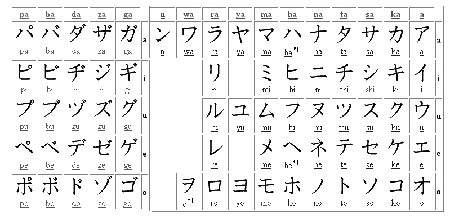Japanese is a difficult language to learn especially for the native English speaker. For one, it entails a different set of phonetics, with syllables more difficult to pronounce following English phonetics. Some words do not necessarily have direct English translations while there are those that are simply too difficult to remember. As the number of businesses entering the foreign market is increasing, the need for a great interpreter software is also in high demand.
Adjectives and verbs play a big role in conversations, both in English and in Japanese. For you to be able to move forward in learning the Japanese language, you have to start remembering verbs and adjectives and their proper usage. The book, Learn Japanese Verbs and Adjectives Using Memory Mnemonics should be able to help you out. If you need a translation service to translate your documents, you can visit https://translation.net.au/locations/canberra. You can depend on the expertise of a translation company to handle your terminology and industry specifics with the highest proficiency.
Procedure:
What you will need:
- Learn Japanese Verbs and Adjectives Using Memory Mnemonics by Ryan McDonald

Instructions:
- Understand the style of the book. The book mainly lists more than 300 verbs and adjectives along with their word triggers – English terms that will help you remember the Japanese words. The book is arranged by rank, listing verbs according to the degree of importance.
- Go over the categories of verbs and adjectives in the book. The book classifies the terms into three groups: the first 125 verbs are those that are, for the author at least, the most important terms that you need to learn to understand the other aspects of the Japanese language. The second group is comprised of 190 terms that can help you improve your ability to grasp the Japanese verb and adjective usage and finally, the last group with 35 additional verbs that come with good English triggers but are not always used in typical conversations.
- Understand the notes on each adjective to build an impression in your mind of the English triggers. The author of the book has noted his thoughts on each verb and adjective, explaining what the terms sound like in the English language.
- Learn to use each verb from the context of the trigger. Each entry in the book is presented in this format: the term in Romanized form (the verb is spelled out following its pronunciation in English phonetics), followed by the trigger and the use of the trigger in the English language. For instance, for the verb abiru which means to take (a shower), the trigger is, “I be rude” used in the sentence, “I be rude by not taking a shower.” You can easily remember abiru by associating it with the sentence being rude because you didn’t take a shower. In this example, both the trigger and the meaning of the word were used in the same sentence.
- In essence, the book is just telling you to think of an English expression that sounds like the Japanese verb and then use the expression from the context of the term’s real meaning to make it easier for you to remember it.
Tips:
- Not all verbs in the Japanese language may be used in this context. The verbs and adjectives listed in the book, however, are those that you will commonly here in conversations. Mastery of the verbs listed will help make it easier for you to understand more complex forms of the Japanese language.
- The book is meant to give you a head start in learning Japanese. If you want to learn about the proper way of speaking in Japanese (i.e. use of honorifics), you need to consult another book.